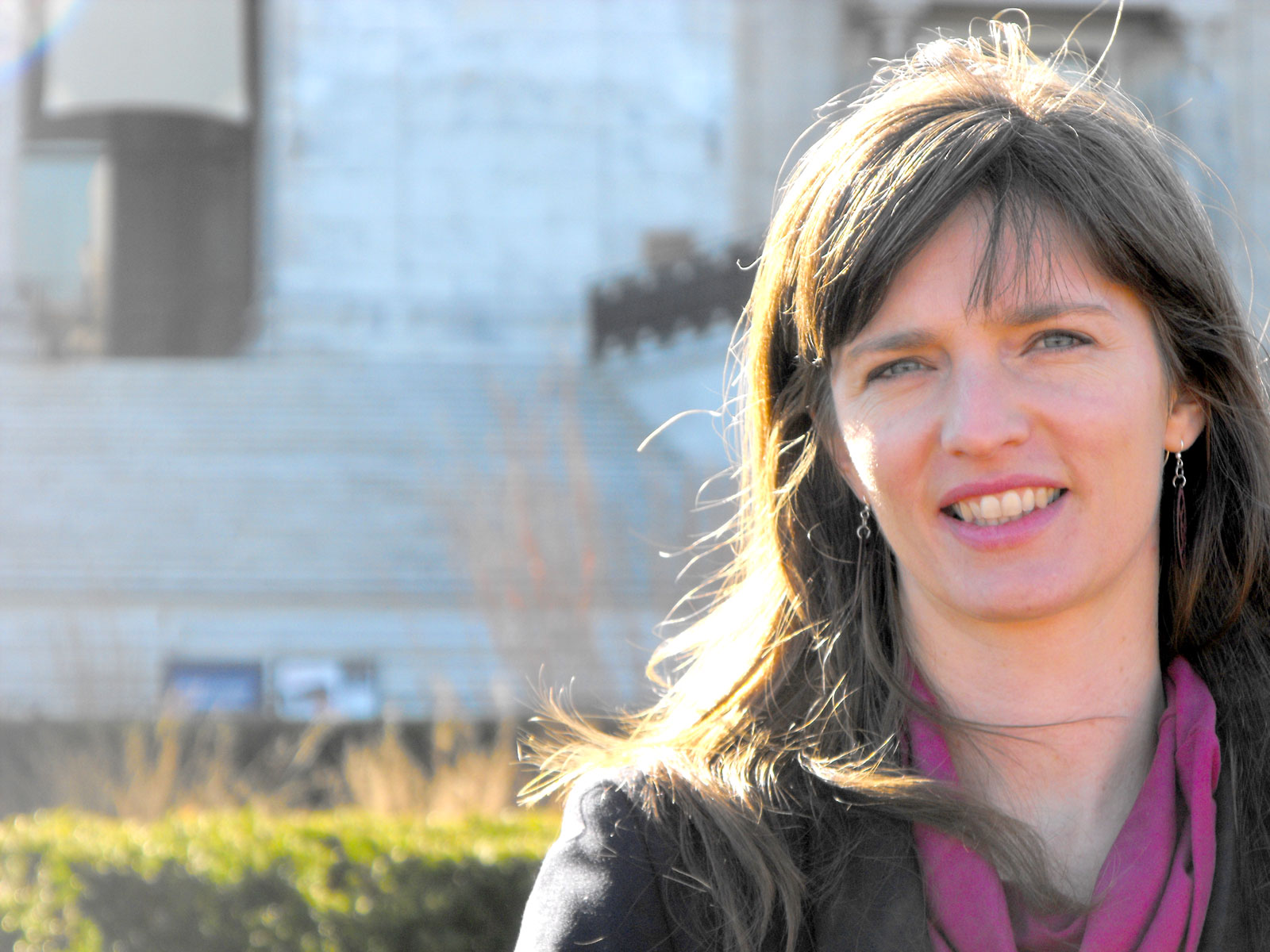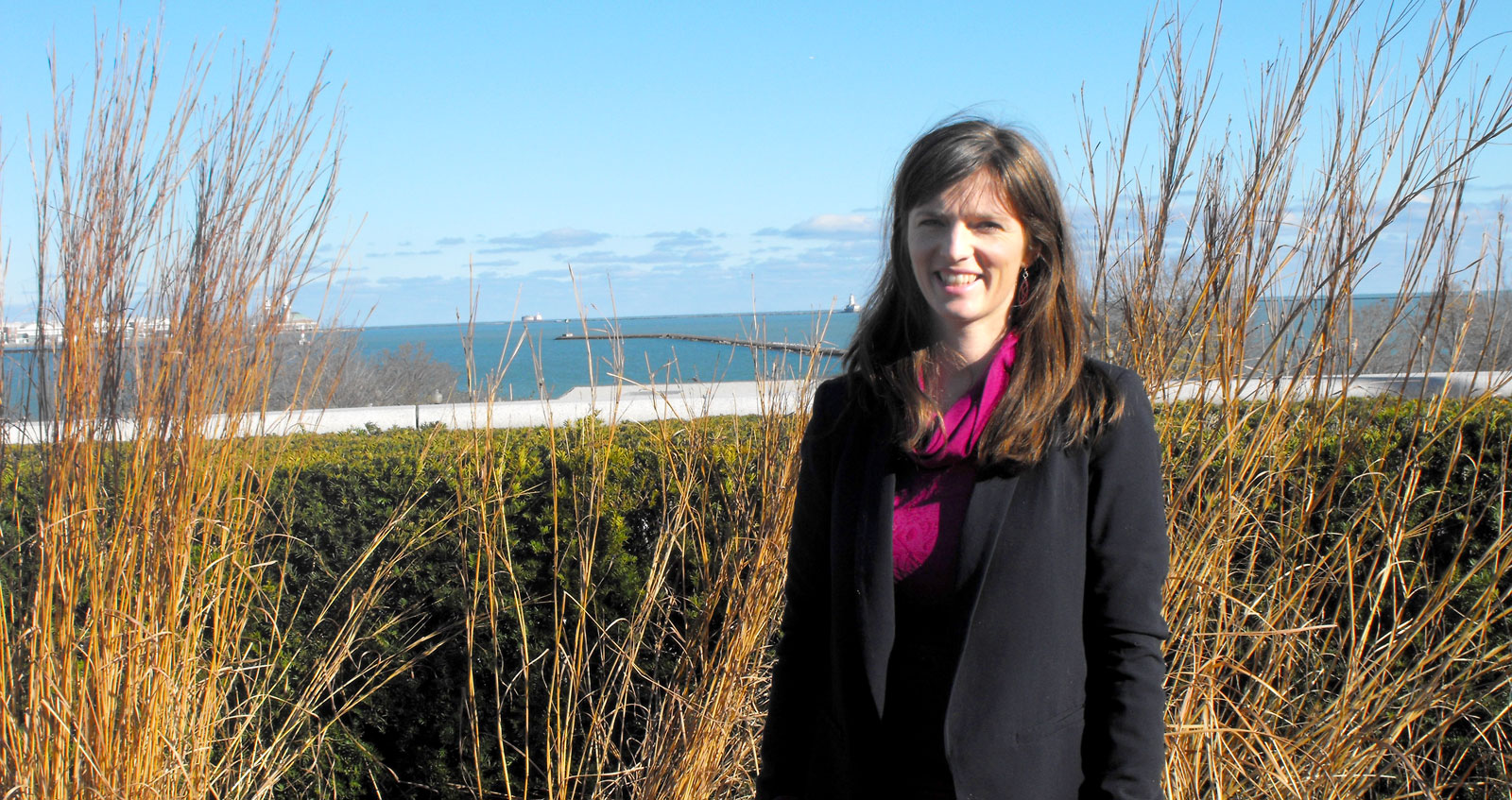
Alison Paul (MA in Social and Cultural Foundations in Education, ’12) was in Colombia when she met Dr. Stephen Haymes, Associate Professor in the Educational Policy Studies and Research department in DePaul’s College of Education. Coming to the end of a two-year stint working with
Witness for Peace, an organization dedicated to supporting peace, justice and sustainable economies in the Americas, Ms. Paul was considering her next steps. She explains, “I was focused on the questions ‘How do we get people to care?’ and ‘What motivates people to act?’ For me, it was a no-brainer that we need to be change agents so why wasn’t that way for everyone?” Originally planning on a graduate degree in Peace Studies, Dr. Haymes urged Ms. Paul to consider the Masters in Social and Cultural Foundations in Education (SCFE) program. “I was drawn to the program's emphasis on the various factors that influence education - both our formal education systems and the things that shape who we are in the world outside of the formal classroom,” says Paul. “It is bigger than classroom education. It is about how many places, people and systems teach you how to be in the world.”
Currently, Ms. Paul is the manager of the
Youth Conservation Action (YCA) Program at
The Field Museum in Chicago. By developing partnerships with schools and other non-profit organizations, YCA uses a place-based environmental education model to get teachers and students passionate about nature and aware of and involved in local urban conservation issues. While creating enthusiasm for STEM studies, YCA also improves students’ critical thinking, creativity, and problem solving skills.
Tasked with encouraging area students in grades 3-12 to develop an interest in science, to connect with nature, and to learn the skills needed to become future conservationists, her time in the SCFE program has been essential to her success. “My degree from DePaul gave me the creativity and critical mind needed to find lasting solutions to tough problems and to take a big view on how education can help promote social change.”
The emphasis SCFE places on the social justice issues that shape education such as class, power, and privilege also impacts her job. “I work with many students from the south and west sides of Chicago,” Paul explains. “These students deal with challenges both inside and outside of the classroom. They have limited access to greenspace. I can teach them the names of the various plants but if they feel it is unsafe to go outside, we’ve missed the point.” To address this, the Youth Conservation Action Program features a scaffolded plan of hands-on, grade-appropriate activities designed to empower students to take action to improve their own communities. Younger students complete in-classroom lessons leading to a field trip to a local natural area. Middle school students choose a local environmental issue to explore and take action on. High school students adopt a natural site where, through scientific methods, they perform ecological observation and restoration. Students who complete the program have the opportunity to serve in a variety of internships to expand their knowledge of conservation issues and build leadership skills essential in a future career.
All of which circles back to the “big picture” view Ms. Paul cultivated during her time at DePaul. “Education is so much larger than school. It's bigger than what you learn in the classroom, it's also about how we are taught to act in the world and how we interact with it. It’s my hope that by connecting Chicago youth to nature we can foster the next generation of critical thinkers and creative problem solvers needed for a healthy planet.”
 Like Alison, are you interested in the social and cultural issues surrounding education?
Like Alison, are you interested in the social and cultural issues surrounding education? The two-year master's degree program in Social and Cultural Foundations in Education (SCFE) prepares versatile professionals to be more effective educators in schools, hospitals, businesses, associations, community and civic agencies and museums.
Explore SCFE